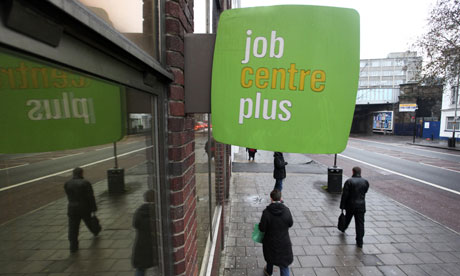 |
| Ian Mulheirn tells us the facts demand we replace "welfare scrounger" rhetoric with action for the young |
Have you noticed how the
weather is behaving like the economy? Just as we think we are through the worst
of it another hard frost is upon us. Down at the allotment we can fleece
against the cold, an act that may or may not protect first early potatoes, but
for those hit hardest by the recession, weathering the economy is a good deal
harder.
Doing nothing is not an
option. Only devastation follows neglect and the growing number of young
unemployed people is a ticking time bomb for us all. The disproportionate rise
of unemployment for the young is the clearest indicator that recession will
continue and cost. The young really are our future (lyric alert) "teach
them well and let them lead the way", let them languish and watch future
prosperity fade away.
I have been scanning the
horizon for hope, but I can't find any data beyond a dismal 3% that indicates
the Work Programme is actually getting the long term unemployed into work.
@LiamByrne's recent blog for LabourList "Our young people need a real chance to work in a real job
paying a real wage" highlights the plight of the young
unemployed and communicates his sense of urgency. As the MP with a constituency
where youth unemployment is higher than anywhere in the UK, with 30 jobless
chasing each opportunity, he knows this is a crisis. His call to action is for
Labour local authorities to make getting jobs for the young a priority, but it
should be a matter of urgency for us all. I remember the 80's when jobs became
a hopeless Holy Grail for so many and the so-called "rump" of todays
permanently unemployed was created. We know that the first four years after a
young person leaves school, college or university is critical and if they fail
to launch in that time their future is bleak and their confidence gone.
But the demonised,
feckless, undeserving poor so commonly condemned by our increasingly intolerant
population is in fact a myth highlighted by a really hard hitting piece by Ian
Mulheirn, in this months NewStatesman, "The Myth of the welfare scrounger". Here
Ian quotes the Department of Work and Pensions own research that shows only a
small minority of adults - 11 per cent of claimants in 2010-11 - have a history
of spending more than half of recent years on the dole. This is in sharp contrast with the British Social Attitudes survey which
shows that in 2011 54 per cent of people thought that if benefits were lower
people would "learn to stand on their own two feet", more than double
the 26 per cent who felt that way 20 years earlier. As Ian tells us " it’s
clear that the excoriating rhetoric isn’t based in reality".
When Social Enterprise London delivered a Future Jobs Fund
programme in 2011, 74 per cent of the under unemployed 24's we placed in social
enterprises came off benefits for good. The team and I agreed that although we
met our target of helping 500 young people at the time we could have placed
four times that amount.
I don't know if social
enterprise, community businesses or civil society organisations can still offer
the young opportunity on that scale, given those that are still in business
have had to weather two years of hard recession since the days of optimism when
the Future Jobs Fund held real hope of our young. But I can say categorically,
that if we don't make it the business of all of us to help our future business
leaders, innovators and tax payers we will all have plenty of time to regret
it.











